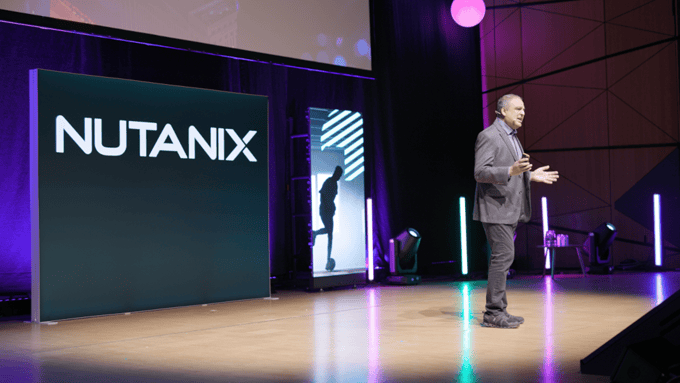AI in 2025 between self-optimization, cooperation and efficiency
Nutanix, a service provider specializing in hybrid multicloud computing, sees the use of artificial intelligence in companies entering a new phase in 2025. It will be characterized by self-optimization, cooperation and efficiency.

2025 marks the start of a profound transformation of enterprise software. It will go beyond the previous democratization of software development and engineering using generative AI and will change the previously stable software workflows. This is how Induprakas Keri, Senior Vice President and General Manager Hybrid Multicloud at Nutanix, sees the near future. "This year, a new type of software will come onto the market that learns from its application and improves the user experience and productivity of development teams independently, i.e. without active programming," says the expert.
Cooperation with the help of AI agents
In addition to self-optimization, the topic of cooperation will become increasingly important. This involves the collaboration of AI agents that can also conduct negotiations. "For companies to benefit from this, they need employees with the appropriate skills, processes and technologies," explains Debo Dutta, Chief AI Officer (CAIO) at Nutanix. New reasoning models, including open source models, would give AI models additional capabilities. Dutta assumes that AI inferencing will continue to gain in importance due to the increasing spread of reasoning models and agents.
In his opinion, new technologies and architectures will emerge to support the new generations of models and multi-agent systems. For example, in-memory computing will become popular in order to overcome the memory wall. In addition, entire memory controllers will run on intelligent network cards. His colleague Keri agrees and expects the power consumption of AI inferencing, especially at the edge, to become a serious challenge: "Contrary to popular belief, inferencing will be the real power guzzler, rather than training."
Also a consequence of AI in 2025: electricity consumption as a cost driver
As power consumption increases, so do the costs for companies. According to Dutta, this is mainly due to the scaling of the computing capacities required for inferencing. Companies therefore need to rethink their expenditure on infrastructure and energy.
To ensure that investments and operating costs do not jeopardize the success of AI projects, companies should use artificial intelligence in particular to "identify inefficiencies and automate labour-intensive processes", according to Tobi Knaup, General Manager Cloud Native at Nutanix. He recommends: "IT managers should pursue the strategy of financing AI with the help of AI." IT itself is under pressure to work with maximum efficiency and should therefore decommission products that do not use AI.
According to Rajiv Ramaswami, President and CEO of Nutanix, Nutanix itself is aiming for a 25 percent increase in development productivity: "We will use artificial intelligence to generate code for unit tests and a range of other functions." These and similar projects will become a reality in 2025 and will spread to more and more areas of the company with the emergence of new AI applications.
Source and further information: www.nutanix.com









